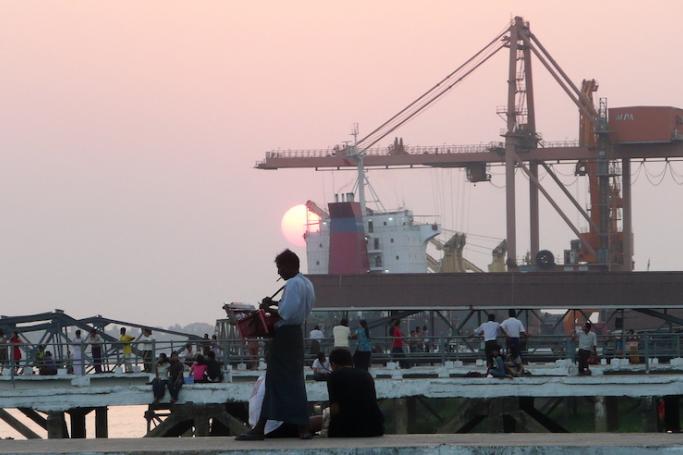Surveys conducted by UNDP and other organizations showed a clear increase in the overall vulnerability of the population due to failing income, depletion of assets, lack of access to healthcare and nutrition, disruption of education and a rise of insecurity due to the outbreak of conflicts.
The UNDP published its report “Myanmar at a Crossroads: Past trends of human well-being and a future outlook” on 24 May.
The household-based human development index in the report said that since the military coup in early 2021, nearly three quarters (73.6 percent) of household in the country has seen a decline of their income.
The income reduction was suffered in 74.8 percent of rural households, compared to 63.3 percent in urban households by the end of 2021.
The UNDP report said households solved the problem of income decline in various ways, such as using their savings from their bank accounts, borrowing from friends and family, selling productive assets, reducing the intake of nutritious food or removing children from school.
Among these ways, over one-fourth (26.5 percent) of households opted for selling assets to get cash in times of difficulty in mid-2021.
The economic crisis resulting from the military takeover has forced households to sell their gold and jewelry (68.1 percent) and productive assets such as livestock and motorbikes (38.7 percent).
The figures of households selling their assets increased to 36.9 percent by the end of 2021 and 42.1 percent by mid-2022.
Surveys conducted after the military coup in February 2021 showed worsening food insecurity in Myanmar. “By mid-2021, 38.7 percent of household reported eating less than usual. This number rose to 40.6 percent by the end of 2021. Furthermore, in mid-2022, over one in four households (26.0 percent)in Yangon reported that there was a time when people in their household were unable to eat healthy and nutritious food because of lack of money.”
In addition, nearly one-third of households with children in Yangon were unable to eat healthy and nutritious food due to the lack of money and over two-fifths ate less due to the lack of resources.
World Bank Country Director for Myanmar, Cambodia, and the Lao PDR, Mariam Sherman said: “While conflict remains, families suffer from insecurity and violence. Firms, particularly those in the agriculture sector, are experiencing higher costs and delays. Funding for critical health and education services is falling, and lack of trust in public services is increasing. These problems will hinder Myanmar’s long-term economic prosperity.”
The UNOCHA has estimated that the number of people experiencing food security will rise to 15.2 million in 2023, up from 13.2 million in 2022. This is out of a total country population of about 54 million people.
At present, Myanmar people continue to pay a high price for two years of political instability, sparked by the 1 February 2021 military takeover from the democratically-elected National League For Democracy (NLD) government.












